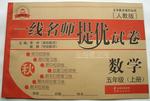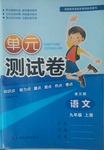题目内容
She searched ___.
- A.her drawers for her pen
- B.her pen in her drawers
- C.her pen from he drawers
- D.her pen for her drawers

 一线名师提优试卷系列答案
一线名师提优试卷系列答案 阳光试卷单元测试卷系列答案
阳光试卷单元测试卷系列答案A Book Review—The Snake-Stone by Berlie Doherty
The setting: Urban England (the cities), but also rural England (the countryside) including remote English villages.
The theme: The main theme is a teenage research of self-discovery, in this case the search for a mother from whom the hero was separated at an early age.Its other concerns are love, getting on with others, being persistent and courageous and trying to deal with doubts, troubles and worries.As the book moves to a close, James’ swimming coach says to him: “You are not like a kid obeying instructions any more.You are diving like a young man who knows where he is going.”
The characters: James is the hero of the story.He is a championship diver, and has a comfortable life with his foster parents (养父母).Yet he also has the qualities to take him on a long journey to find his birth mother.The other characters in The Snake-Stone, James’ parents, his diving instructor, best friend, the villagers, people he meets on his journey, are pictured realistically.
The turning point: The turning point in the story comes while James’ foster parents are away in London, and he wonders about the identity of his birth mother.The only clue he has is a fossil, “the snake stone” which she left behind along with a note on which she had written: “Take good care of Sammie.It was written on a torn envelope with parts of an address still there.
The journey: Instead of going to London, James decides to find his birth mother.With help from his geography teacher, James sets out for the remote country village where his mother might be found.James has painful, challenging, but also humorous and happy travels.The mother he finally meets, Anne, has a minor yet powerful voice in the novel.He comes to understand why she left him at a stranger’s door fifteen years before.Although the meeting is not long, it leaves him with a feeling of completeness.As a journey of self-discovery The Snake-Stone also provides its readers with a happy ending.Its hero says, on returning to his foster parents, “I was home.”
1.What is the main theme of the novel?
|
A.A journey of self-discovery. |
|
B.Life in the world of diving. |
|
C.Life with foster parents. |
|
D.A travel around the country. |
2. What do the coach’s words in Paragraph 2 suggest?
|
A.James is a successful diver. |
|
B.James is an independent young man. |
|
C.James is an outgoing young man. |
|
D.James is a hopeful swimmer. |
3. The snake stone in the novel is .
|
A.a stone with an address on it |
|
B.a gift from the swimming coach |
|
C.a clue left by the birth mother |
|
D.a fossil left by the foster parents |
4.Which of the following is true about the novel?
|
A.The story has a sad ending. |
|
B.The story takes place in the city of London. |
|
C.The characters are vividly described. |
|
D.The turning point comes after the hero meets his birth mother. |
5.It can be concluded that James’ journey is _________.
|
A.disappointing |
B.boring |
|
C.comfortable |
D.worthwhile |
Michel is a young girl who works for the police 36 a handwriting expert (专家). She has helped 37 many criminals (罪犯) by using her special talents (天才).
When she was fourteen, Michel was already 38 interested in the differences in her friends' 39 that she would spend hours 40 them. After 41 college she went to France for a 42 two-year class in handwriting at the School of Police Science.
Michel says that it is 43 for people to hide their handwriting. She can discover 44 of what she needs to know simply 45 looking at the writing with her own eyes, 46 she also has machines 47 help her make 48 different kinds of paper and ink. This knowledge is often 49 great help to the police.
Michel believes that handwriting is a good 50 of what kind of person the 51 is. "I wouldn't go out with a fellow 52 I didn't like his handwriting.” She says. But she 53 she fell in love with her future husband, a young policeman 54 she studied his handwriting. It is later proved to be 55 , however.
|
1. |
|
|
2. |
|
|
3. |
|
|
4. |
|
|
5. |
|
|
6. |
|
|
7. |
|
|
8. |
|
|
9. |
|
|
10. |
|
|
11. |
|
|
12. |
|
|
13. |
|
|
14. |
|
|
15. |
|
|
16. |
|
|
17. |
|
|
18. |
|
|
19. |
|
|
20. |
|